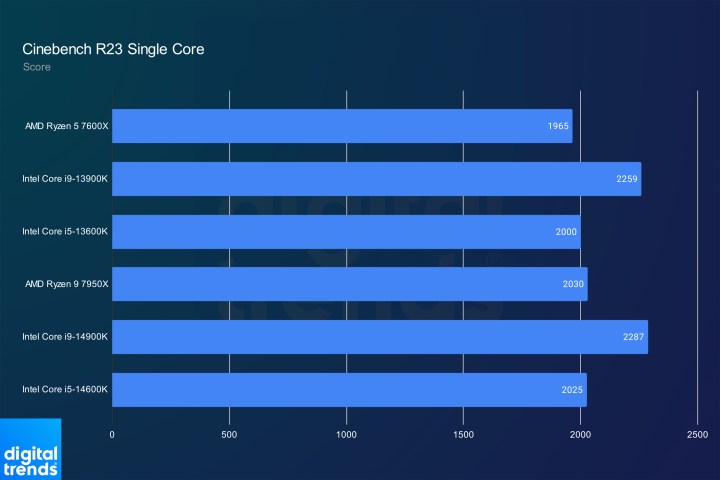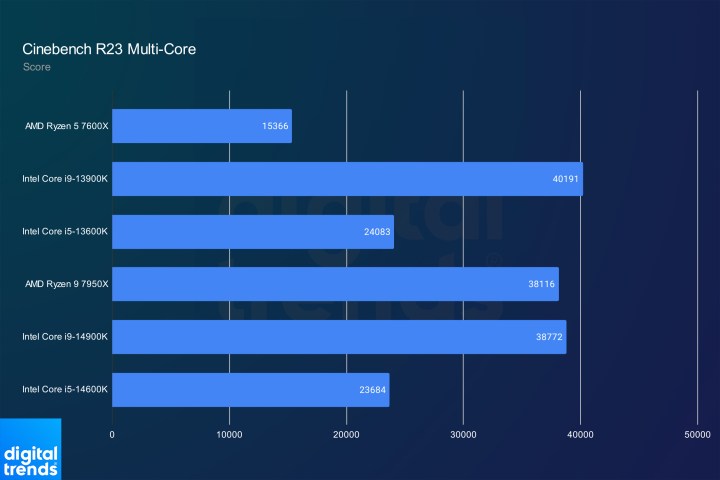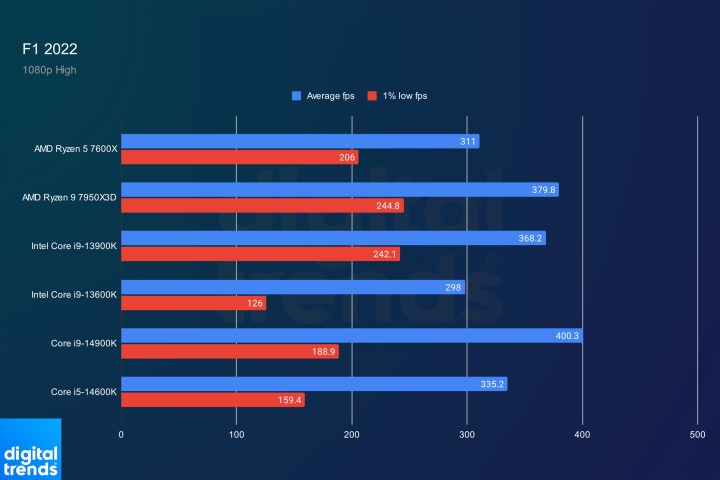Intel’s new Core i9-14900K is a tough processor to evaluate. It brings the same number of cores and the same architecture as last-gen’s Core i9-13900K, but Intel asserts that the new chip delivers some performance improvements. Is that true, and is it worth ditching last-gen’s flagship for what Intel claims is its best processor?
The Core i9-14900K fixes some of the weaker areas of the Core i9-13900K. However, as you can read in our Intel Core i9-14900K review, the new processor does very little to justify spending a higher price for largely the same performance.
Pricing and availability
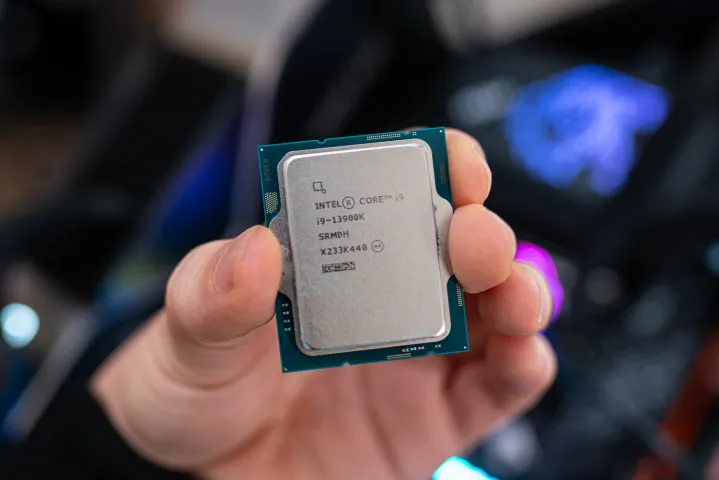
Both the Core i9-13900K and Core i9-14900K come with the same recommended price from Intel: $590. These are flagship chips, and you should expect to spend close to $600 for either processor. The Core i9-13900K has the benefit of being older, though.
You can commonly find it for around $560, with it sometimes dropping down to $540 when on sale. There’s a good chance the price will drop further in the weeks following the release of the Core i9-14900K. We see that with last-gen parts all the time. Intel’s Core i9-12900K, for example, is now readily available for $375 despite being a $550 processor just a year ago.

The Core i9-14900K is listed at $590, but it’s already selling for more. As we’ve seen with Intel’s last two flagships, the Core i9-14900K will likely sell between $620 and $640 for at least a few months. Currently, the processor is selling for $630.
As is usually the case with comparing two processors, you’ll have to weigh the performance against the price you find each chip at. Between the Core i9-13900K and Core i9-14900K, there’s anywhere from a $10 to $100 difference depending on what happens after the launch dust has settled. If only $10 or $20 separates the chips, it’s worth getting the new processor. However, in the likely case there’s a gap of $70 or more, you’re already getting most of the performance with the less expensive Core i9-13900K.
Specs
There’s not much to talk about in terms of specs with the Core i9-13900K and Core i9-14900K because, on paper, they look almost identical. Both processors use the Intel 7 node, and they come with 24 cores split across eight performance cores and 16 efficiency cores, totaling 32 threads.
The only difference is clock speed. The Core i9-14900K can boost to 6GHz out of the box, while the Core i9-13900K tops out at 5.8GHz. In addition, the Core i9-14900K comes with a 200MHz boost to both the base and boost clock speeds of the performance cores and efficiency cores.
| Core i9-14900K | Core i9-13900K | |
| Cores/Threads | 24 (8+16) / 32 | 24 (8+16) / 32 |
| L3/L2 Cache | 36MB / 32MB | 36MB / 32MB |
| Max turbo frequency | 6GHz | 5.6GHz |
| Base/Turbo power | 125W / 253W | 125W / 253W |
| Current price | $630 | $570 |
Everything else is identical, including the 36MB of L3 cache, 32MB of L2 cache, and 253 watts of maximum turbo power. It’s a shame there wasn’t at least a bump to cache, especially with AMD’s 3D V-Cache processors still dominating gaming charts. There would likely be a better incentive to spend up for the Core i9-14900K in that case.
Productivity performance
For raw CPU power, the Core i9-14900K doesn’t improve much on the Core i9-13900K. In our tests, there were some cases where it was slightly worse. In Cinebench R23’s multi-core test, the Core i9-14900K was about 3% slower than the Core i9-13900K. Not a good start.
To be clear, this is probably due to a difference in silicon — based on other tests, it appears we have a particularly speedy Core i9-13900K. But even that explanation only brings the Core i9-14900K up to par. It’s hard to justify spending more for identical performance, much less a regression in performance. There wasn’t a regression in single-core performance, but both processors put up basically the same result.
That’s not the only test where we saw largely identical performance. In Blender 3.4, there are only marginal differences between the Core i9-13900K and Core i9-14900K. You could swap the names on this chart and there would be no difference in the conclusion. That’s also not good for the Core i9-14900K.
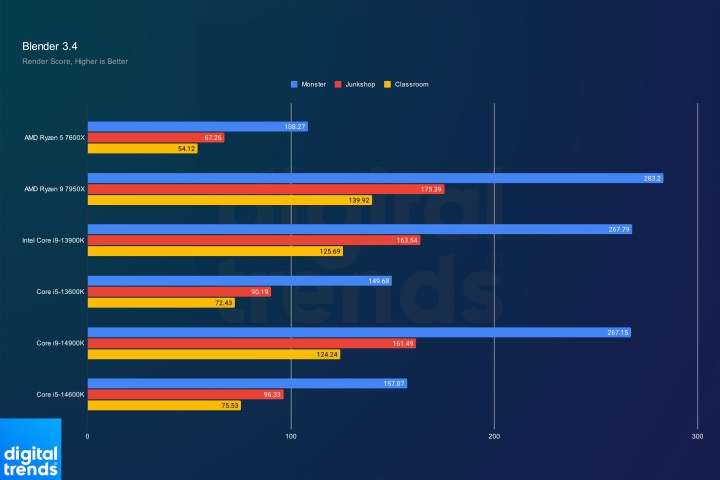
Those are the weakest tests for the Core i9-14900K, however. In a transcoding test like Handbrake, the Core i9-14900K managed to finish the task 8% faster than the Core i9-13900K. That’s likely the higher boost clock speed at work. It’s not a massive improvement, but the extra boost might be worth it if you do a lot of video editing.

In 7-Zip, the Core i9-14900K shows the clearest improvement. On the back of better compression performance, it ended up 15% faster than the Core i9-13900K. Decompression is usually more important, especially in tasks like gaming, but it’s good to see Intel make some improvements in this benchmarks that’s normally dominated by AMD processors.
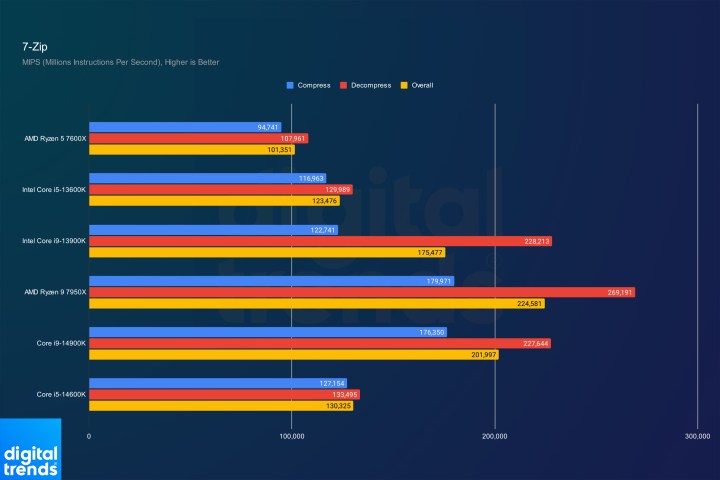
Another area where the Core i9-14900K shows a lead is Y-Cruncher, though it’s not as stark as in 7-Zip. In calculating 500 million digits of Pi, the Core i9-14900K was able to complete the task 9% faster when using a single core, and 14% faster when using every core.
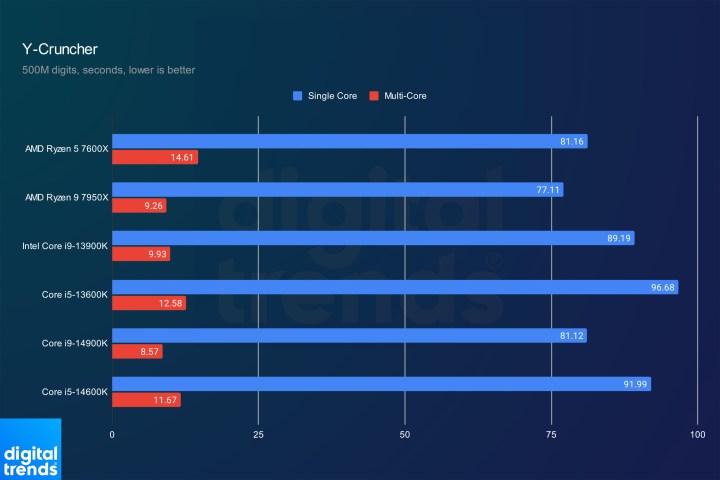
The largest performance jump came in Jetstream 2. This web-based benchmark showed the Core i9-14900K around 16% ahead of the Core i9-13900K. That’s a massive jump for web-based applications, but you don’t usually buy a flagship CPU for web apps.

That’s the biggest problem for the Core i9-14900K. It shows some improvements, but not in the areas where it matters most. For instance, in PugetBench for Photoshop, the Core i9-14900K posted almost identical numbers to the Core i9-13900K.
Gaming performance
Intel has highlighted the gaming improvements of the Core i9-14900K over the previous generation, likely to close the gap with chips like the Ryzen 7 7800X3D. And there are some clear improvements here, even if they aren’t big enough to justify a new flagship CPU.
At a high level, the Core i9-14900K was 20% faster than the Core i9-13900K in 3DMark Time Spy. We’re looking specifically at the CPU score of this test as well. That’s a huge jump, but unfortunately, it only applies to this synthetic test.
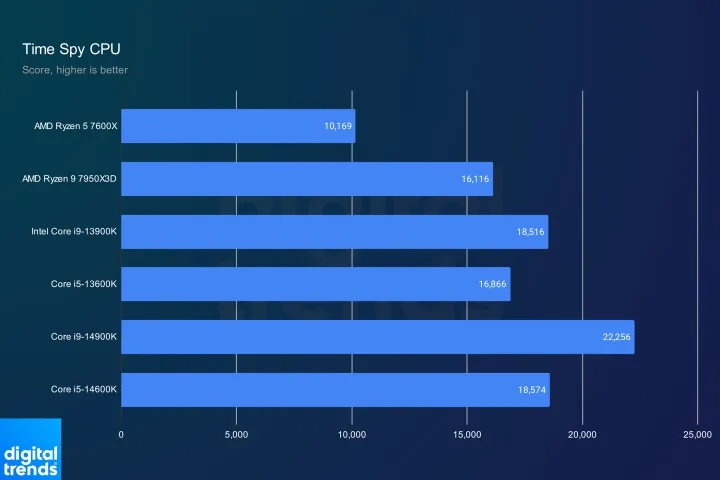
If we look at Hitman 3, that lead shrinks to about 10%. That’s still a respectable jump in gaming performance, but it’s a far cry from what we saw in 3DMark. Similarly, in F1 2022, the Core i9-14900K showed an improvement of about 9%.
The largest boost comes in Far Cry 6, where we saw the Core i9-14900K outpace the Core i9-13900K by close to 33%. It’s worth pointing out where that the Core i5-13600K even showed a higher score than the flagship, so there could be shenanigans with how tasks were scheduled across the performance and efficiency cores. We’ve seen that previously with Intel’s hybrid architecture.
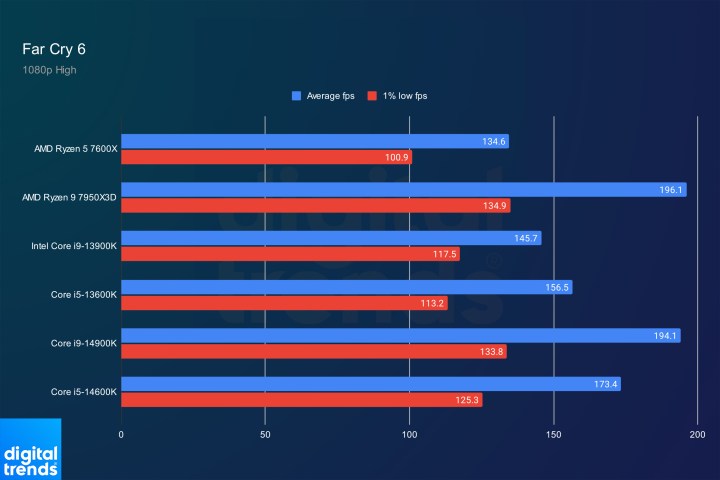
Although the Core i9-14900K shows performance improvements at 1080p with High graphics settings, you likely won’t be using this processor for 1080p gaming with lowered settings. If we look at Red Dead Redemption 2 with its Ultra preset, you can see the Core i9-14900K actually ended up a few frames slower than the Core i9-13900K. This graphically demanding game is a good reminder that your graphics card will play a more significant role in overall gaming performance as you increase your resolution and graphics settings.
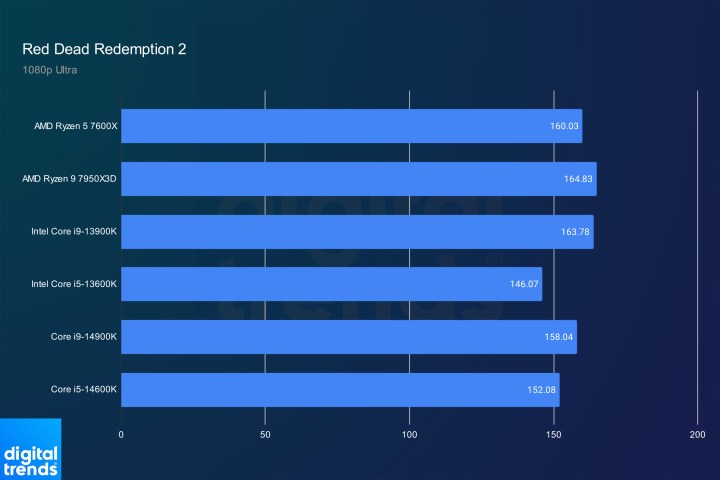
Which is best?
Currently, those upgrading from a 12th-gen or older CPU should go with the Core i9-14900K. It’s about $50 more expensive than the Core i9-13900K, and it brings some solid performance improvements. This is the limit for the Core i9-14900K, though.
When the Core i9-13900K inevitably slips in price further, it’s the better option. It offers most of the performance of its 14th-gen counterpart for a lower price. In addition, those already using a Core i9-13900K have very little reason to upgrade. The Core i9-14900K is faster, but not by enough to justify spending more than $600 on a new CPU.
Editors’ Recommendations
Services Marketplace – Listings, Bookings & Reviews
